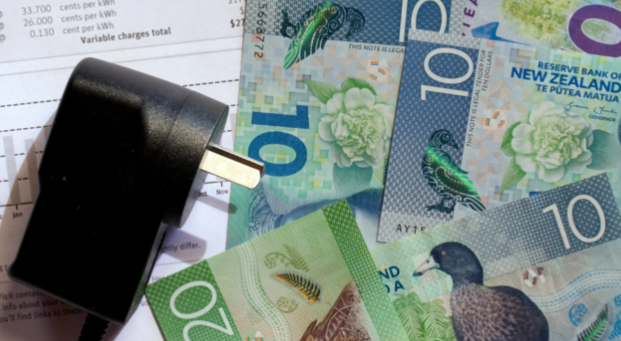There are many ways to save money on power, and you may already be doing some of these things.
Shop around / review power companies and plans
- You might be surprised how much money you can save by simply changing your power plan or company. It pays to check and review this annually or at least every few years.
- Some companies offer Free ‘hour(s) of power’ deals and low off-peak rates offer a great opportunity to save money, especially if you’re able to shift some of your household power use to these cheaper times. For example if you are normally home on the weekends and normally do most of your washing etc on the weekend, free weekends may be great for you. Be aware that plans that offer free periods of power, will normally charge a higher rate at other times, so you need to make sure you maximise the power usage during any free period to save money.
- Go to https://www.powerswitch.org.nz/ sign up and compare.
Switch off or unplug devices when not in use.
- Many appliances and chargers still consume a small amount of energy in standby mode which is costing you money.
If you can upgrade appliances
- Older appliances are generally not as energy efficient as newer ones, so overtime and where you can upgrade to more energy efficient ones.
Wash Clothes mainly in cold water
- Hot water washes are far more costly than cold water washes.
Switch to energy efficient lighting
- LED or energy efficient light bulbs will use less power, and last longer. Also make sure to turn lights off when leaving a room. Don’t leave lights on that don’t need to be on.
Use a heat pump rather than traditional heating systems
- Set your heat pump to a maximum of 21 degrees, close off the room to retain the heat in the area you are located.
- Ensure you clean or get cleaned, the air filter as these get clogged with dust overtime which makes the heat pump work harder. Clean these at least every 3-4 Months
Heaters – use the appropriate wattage for the right areas
- Heaters that are 2000w – 2400w or higher will generally be enough to heat a closed off room. Anything smaller than 2000w will be better suited to a smaller room. A heater that is 1000w or lower will take the edge of the cold rather than making the room hot and keeping warm for you.
Close windows and pull curtains and blinds early on colder winter days
- This helps retain the amount of heat lost that escapes out your windows
Install a water efficient showerhead and limit showers to five minutes
- A water efficient showerhead will use less water while maintaining pressure. Try and limit showers to 5 minutes, use the alarm on your phone so you stick to the 5 mins
Fix leaking taps
- Advise your landlord or get the plumber in to fix leaking taps.
Heated Towel rails – Do you need that heated towel rail on.
Cooking use the most efficient appliance
- Depending on what you are cooking, sometimes, it more efficient and cheaper to use the microwave, air fryer, or slow cooker, rather than heat the oven up.
If your home is cold and damp, look for draughts around doors and windows.
- Advise you landlord or get a handyman in to fix
Keep your home dry and moisture free – make sure
- You don’t hang washing inside.
- That extractor fans in bathrooms and cooking areas are working and vented to the outside of the house.
- To open curtains during the day to let some warmth in, open doors and windows for some air flow. Wipe away any condensation that forms on windows or walls. If condensation is an issue consider a smartvent, or dvs type system as these will dramatically reduce condensation.

